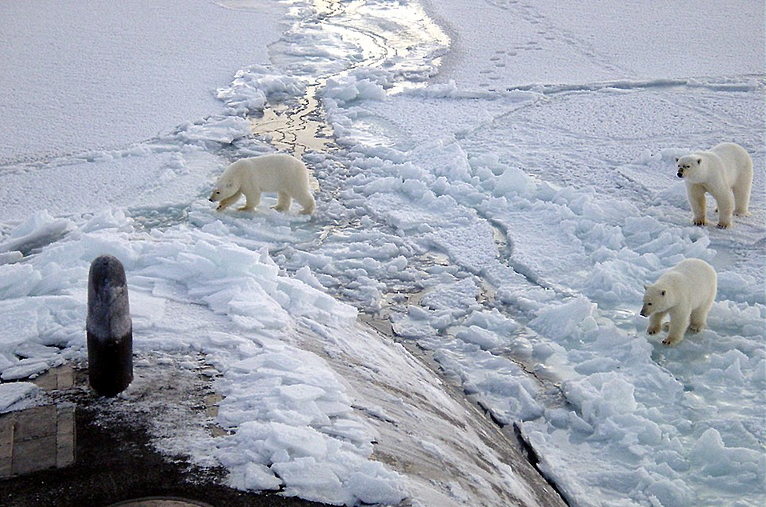(Conversation Recorded on August 18, 2022.)
On this episode, Climate Scientist Steve Vavrus joins Nate to discuss the Arctic and its critical impact on climate science. Why are the effects of warming so extreme in the Arctic, and what are the implications for weather events and average temperatures on the rest of the planet? Do runaway arctic feedback loops mean disaster ‘Blue Ocean’ scenarios?
Steve explains why the answers to these questions aren’t as simple as they may seem and talks about the challenges and hopes he sees for the future of humans and global climate.
About Steve Vavrus
Steve Vavrus is a Senior Scientist in the Nelson Institute Center for Climatic Research at the University of Wisconsin-Madison. He uses computer climate models and observational data to understand how our climate is changing across the world, including in Wisconsin. Extreme weather events are an important theme of his research, particularly how they might be affected by climate change. Steve is co-director of the Wisconsin Initiative on Climate Change Impacts (WICCI) and has been a long-time member of its Climate Working Group. Additionally, Steve is an IPCC Scientist, contributing to the most recent climate report. Steve received Ph.D. and Master’s degrees in meteorology at the University of Wisconsin and a Bachelor’s degree in meteorology at Purdue University.
Show Notes & Links to Learn More
00:42 – IPCC climate scientist
02:20 – Acid rain
02:30 – Climate change
03:15 – National Cap and Trade system
03:55 – Carbon dioxide, methane solutions require different strategies
04:05 – We [U.S.] burn a lot less coal than we used to, China is still largest coal-burning country
04:24 – Air pollution in India and air pollution in China
04:42 – Arctic and Antarctic roles in climate system
05:14 – Polar regions and hot tropics
05:27 – Storms and the Jet Stream
05:40 – Snow and ice locked up in the polar regions and sea level rise
05:53 – Arctic warming 4x faster than world average
06:08 – Temperature differential
07:12 – Extreme weather events which are prolonged
07:26 – Polar vortex and heat domes
08:27 – Europe all time heat records, 104 degrees in London, Canada all time temperature record of 121 degrees
10:06 – 2014 and 2019 Wisconsin cold temps
10:30 – Recency bias
11:01 – Positive feedbacks and albedo
12:52 – Permafrost, Arctic permafrost stores more carbon than in entire atmosphere
13:30 – Greenland ice sheet, Iceland ice cap
14:16 – Boreal forest is dark, tundra is light
14:48 – RCP 8.5 is biophysically implausible
15:17 – IEA or AR6 Moderate Action scenario
16:04 – Realization that high-end emission scenarios are implausible
17:58 – Fluid dynamics
18:14 – Complexity of new climate models
18:23 – Six continent supply chain
19:42 – How climate models add cloud physics
20:25 – IPCC is interdisciplinary, Oceanographers, Glaciologists
21:35 – Arctic amplification of global warming is a very real thing
21:42 – Paleoclimate record, in time of dinosaurs the poles were ice free
22:58 – Blue Ocean event
24:35 – The last interglacial period
24:58 – [Interglacial period] sea levels 6-9 meters or 20-30 feet higher
25:25 – Sea level during peak of last ice age, Russia and Alaska connection
26:03 – Meltwater pulse event
26:13 – Sea level rise impact to people on coast lines
27:39 – First principles
30:30 – Similarities shared between the Arctic and Antarctica.
30:42 – The Arctic is an ocean surrounded by land mass
30:45 – The Antarctic is a land mass surrounded by ocean
30:55 – North Pole, South Pole
32:11 – IPCC report “uncertainty bars”
33:08 – Ocean acidification, change in thermohaline circulation, AMOC, overfishing, food webs on cetaceans
33:53 – Geo-engineering schemes
35:13 – Pumping sulfate aerosols into the atmosphere
37:27 – Crushed olivine rock to absorb CO2
37:58 – Brightening sea ice or snow cover to deflect solar energy
40:40 – Biodiversity, population decline, endocrine disruptors, habitat loss
41:01 – Systems awareness [TGS Movie]
42:17 – How the Arctic will change in the Summer
42:54 – Northern Siberia hit 100 degrees for first time ever reported
45:12 – Anthropogenic climate change
46:57 – Carbon sequestration, solar panels
47:34 – China expanding renewable energy + expanding fossil fuel use
48:36 – Urban heat islands
50:48 – George Floyd, social justice, environmental justice
51:21 – Wet bulb temperature
51:30 – Climate justice
52:05 – Coastal erosion in the Arctic, some villages in Alaska have had to relocate
53:01 – Djibouti and warm nights so the oxen are suffering
54:55 – Heat is the #1 weather-related killer in the US
56:56 – Turn down the temperature in political discourse
Teaser photo credit: Polar bears on the sea ice of the Arctic Ocean, near the North Pole. USS Honolulu pictured. By Chief Yeoman Alphonso Braggs, US-Navy – This image was released by the United States Navy with the ID 031000-N-XXXXB-001 (next).This tag does not indicate the copyright status of the attached work. A normal copyright tag is still required. See Commons:Licensing.العربية ∙ বাংলা ∙ Deutsch ∙ Deutsch (Sie-Form) ∙ English ∙ español ∙ euskara ∙ فارسی ∙ français ∙ italiano ∙ 日本語 ∙ 한국어 ∙ македонски ∙ മലയാളം ∙ Plattdüütsch ∙ Nederlands ∙ polski ∙ پښتو ∙ português ∙ svenska ∙ Türkçe ∙ українська ∙ 简体中文 ∙ 繁體中文 ∙ +/−, Public Domain, https://commons.wikimedia.org/w/index.php?curid=23694






